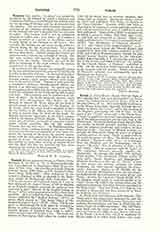

Tootell, HUGH, commonly known as Charles Dodd, historian, b. in 1671 or ’72, at Durton-in-Broughton, Lancashire; d. at Harvington Hall, Worcestershire, February 27, 1743. He was educated at the English College, Douay (1688-1693), and St. Gregory’s Seminary, Paris (1693-1697). After ordination he returned to England in 1698 as chaplain to the Molyneux family at Mosborough Hall, Lancashire. In 1711 he returned to the Continent where he is said to have witnessed the siege of Douay (1712) as chaplain to an English regiment; certainly he wrote in that character a short “History of the English College at Douay” (1713) which purported to be by a Protestant chaplain. As it attacked the Jesuits, Father Thomas Hunter published his “Modest Defense” (1714), to which Dodd replied in “The Secret Policy of the English Society of Jesus” (1715). From 1716 he was again at Mosborough till 1718, when he returned to Douay to collect materials for his great work “The Church History of England from 1500 to 1688″, which occupied him for twenty years. The work was written at Harvington Hall, where he resided from 1722 till his death, first as assistant chaplain, then (from 1726) as chaplain. During his sojourn abroad he wrote and published “Pax Vobis: an Epistle to the Three Churches” (London, 1721); and while at Harvington he composed several spiritual, controversial, and historical treatises most of which have never been published. Many of these MSS. (a complete list of which is given by Gillow, Bibl. Dict. Eng. Cath., V, 550-554) are preserved at Oscott. Those certainly published were: “Certamen Utriusque Ecclesiae” (1724); “An Abridgment of Christian Doctrine” (s. d.); and “Flores Cleri Anglo-Catholici” (s.d.). After many years’ labor the Church History was completed in three folio volumes published in 1737, 1739, and 1742 at Wolverhampton, though for prudential reasons Brussels appears on the title-page. Father John Constable, S.J., attacked his work as unfair to the Jesuits, and Dodd replied in “An Apology for the Church History of England“, published in 1742. On his deathbed Dodd expressed his desire to die in peace with the Jesuits. Dodd’s translation of Panzani’s memoirs was subsequently used by Berington (see Gregorio Panzani).
EDWIN BURTON

